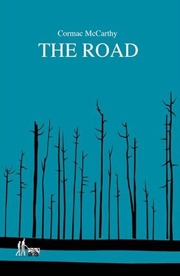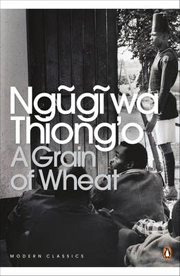The Death of Cormac McCarthy
 The literary world has been shaken by the death of American novelist Cormac McCarthy, whose unflinchingly dark presentation of human life has been published in several novels since the mid-1960s. Influenced in some ways by William Faulkner, McCarthy was a great prose stylist, shaping his sentences for rhythm and sound like a poet. Yet those finely honed sentences frequently narrated horrific violence, particularly in 1985’s Blood Meridian. The reputation of that novel has improved markedly since its publication, but All the Pretty Horses in 1992 was a best-seller and won the National Book Critics Circle Award that National Book Award. No Country for Old Men was made into a Cohen Brothers film in 2007, which was an enormous critical hit, but it was perhaps with The Road that McCarthy really made his mark. A grim, unsparing post-apocalyptic novel, it portrays disturbing violence and cannibalism as humanity is stripped of it civilising ideals in a completely lawless world. A man and his son cross the country, distrustful and scared, trying to avoid those who hunt them down. But in that relationship lies the novel’s hope – a bond of love and a striving for something better, a salvation – but at a cost. The Road was made into a devastating film directed by John Hillcoat in 2010, starring Viggo Mortensen and Kodi Smit-McPhee as the father and son.
The literary world has been shaken by the death of American novelist Cormac McCarthy, whose unflinchingly dark presentation of human life has been published in several novels since the mid-1960s. Influenced in some ways by William Faulkner, McCarthy was a great prose stylist, shaping his sentences for rhythm and sound like a poet. Yet those finely honed sentences frequently narrated horrific violence, particularly in 1985’s Blood Meridian. The reputation of that novel has improved markedly since its publication, but All the Pretty Horses in 1992 was a best-seller and won the National Book Critics Circle Award that National Book Award. No Country for Old Men was made into a Cohen Brothers film in 2007, which was an enormous critical hit, but it was perhaps with The Road that McCarthy really made his mark. A grim, unsparing post-apocalyptic novel, it portrays disturbing violence and cannibalism as humanity is stripped of it civilising ideals in a completely lawless world. A man and his son cross the country, distrustful and scared, trying to avoid those who hunt them down. But in that relationship lies the novel’s hope – a bond of love and a striving for something better, a salvation – but at a cost. The Road was made into a devastating film directed by John Hillcoat in 2010, starring Viggo Mortensen and Kodi Smit-McPhee as the father and son.
Read lines of appreciation from other writers about Cormac McCarthy and his work here.
Kingsolver’s Prizes
 In more cheerful news, Barbara Kingsolver has become the first person to win the Women’s Prize for Fiction twice. She won the award in 2010 for her novel Lacuna, and has just been given it again for her latest book, Demon Copperhead, which takes and twists Dickens’ David Copperfield into the present-day Appalachian mountains. In some ways it’s difficult to believe she hasn’t won it for a third time, since she published The Poisonwood Bible in 1998, two years after the Women’s Prize was inaugurated, and that is a terrific novel, dissecting religious and political neo-colonialism in the Congo. It is narrated in turn by a mother and her four daughters, the family of a zealous American missionary; the female-centric narration is crucial to the way the novel shifts the reader’s perspectives. But Demon Copperhead promises to be a wonderful novel too – it has also gained Kingsolver the Pulitzer Prize.
In more cheerful news, Barbara Kingsolver has become the first person to win the Women’s Prize for Fiction twice. She won the award in 2010 for her novel Lacuna, and has just been given it again for her latest book, Demon Copperhead, which takes and twists Dickens’ David Copperfield into the present-day Appalachian mountains. In some ways it’s difficult to believe she hasn’t won it for a third time, since she published The Poisonwood Bible in 1998, two years after the Women’s Prize was inaugurated, and that is a terrific novel, dissecting religious and political neo-colonialism in the Congo. It is narrated in turn by a mother and her four daughters, the family of a zealous American missionary; the female-centric narration is crucial to the way the novel shifts the reader’s perspectives. But Demon Copperhead promises to be a wonderful novel too – it has also gained Kingsolver the Pulitzer Prize.
Celebrating the Life and Work of Ngũgĩ
 I was very struck this week by a substantial profile of one of Africa’s greatest writers, Ngũgĩ wa Thiong’o, better known as Ngũgĩ, although his original name was James Ngũgĩ. Like Chinua Achebe, who was christened Albert, Ngũgĩ dropped his western Christian name and took his family name as a sign of his rejection of colonial values and his embrace of his Gikuyu heritage. Do a search for his name on this site and you will find plenty of references, particularly on the post-colonial pages. A lecturer who argued for the abolition of his own department (‘On the Abolition of the English Department’) and a successful novelist with an international readership who decided to stop writing in English, Ngũgĩ has always been a committed maverick. He is a writer of passion and political drive, clearly apparent in his novel of Kenyan independence, A Grain of Wheat, and equally in the bitterly scathing denunciation of the failure of that independence for ordinary Kenyans in Petals of Blood.
I was very struck this week by a substantial profile of one of Africa’s greatest writers, Ngũgĩ wa Thiong’o, better known as Ngũgĩ, although his original name was James Ngũgĩ. Like Chinua Achebe, who was christened Albert, Ngũgĩ dropped his western Christian name and took his family name as a sign of his rejection of colonial values and his embrace of his Gikuyu heritage. Do a search for his name on this site and you will find plenty of references, particularly on the post-colonial pages. A lecturer who argued for the abolition of his own department (‘On the Abolition of the English Department’) and a successful novelist with an international readership who decided to stop writing in English, Ngũgĩ has always been a committed maverick. He is a writer of passion and political drive, clearly apparent in his novel of Kenyan independence, A Grain of Wheat, and equally in the bitterly scathing denunciation of the failure of that independence for ordinary Kenyans in Petals of Blood.
Read the full profile of this magnificent and important writer here.